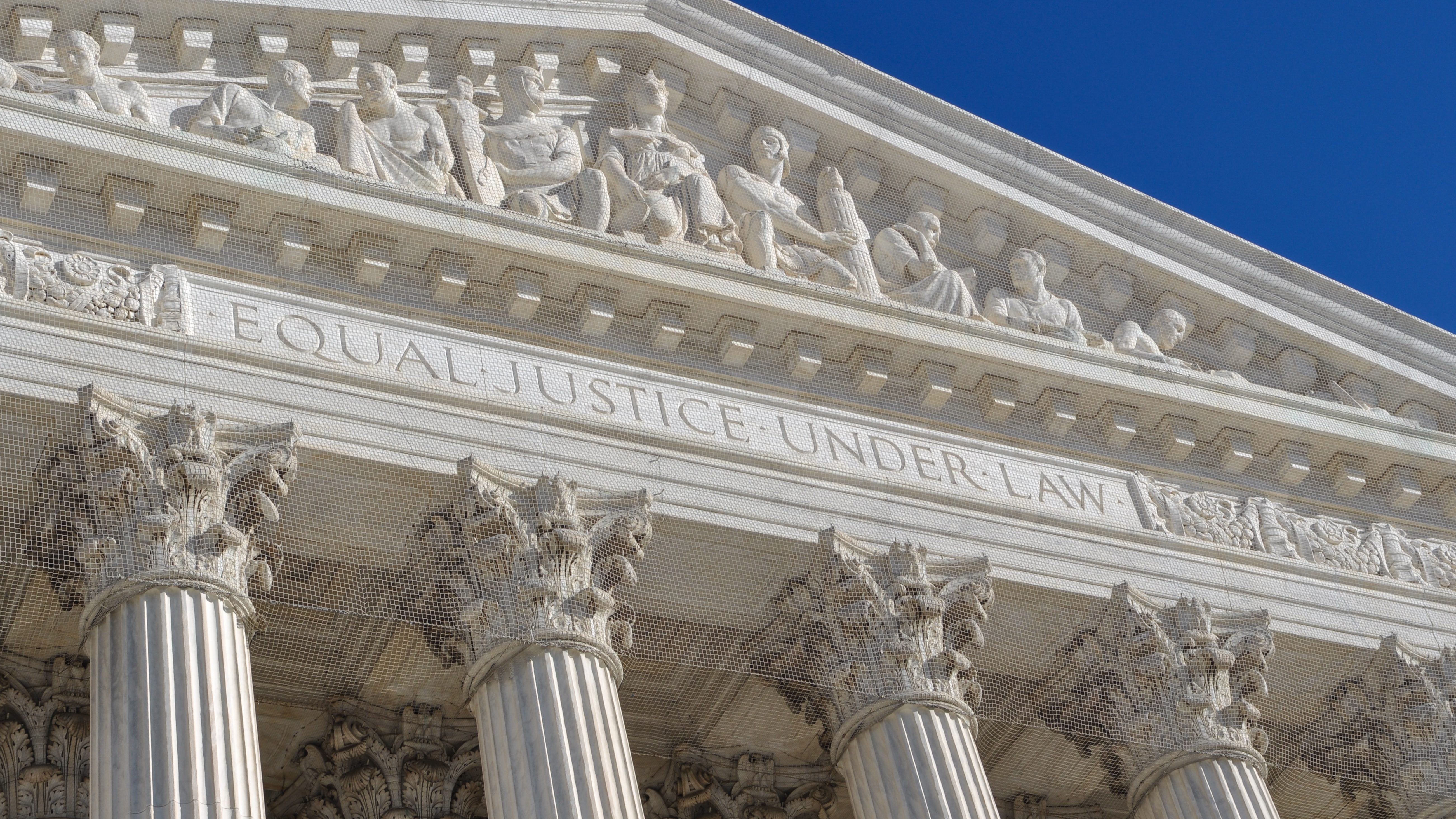|
Getting your Trinity Audio player ready...
|
In a perfect world, today’s arguments before the U.S. Supreme Court would be mere formalities for plaintiff Letitia Jackson and the several lawyers who have taken her voting rights case – the matter of the Alabama Legislature’s newly drawn congressional districts – to the nation’s highest court.
“If they just follow the law, we win and there’s no question about that,” Jackson said during a recent interview on the Alabama Politics This Week podcast.
If only things were so simple.
In reality, however, there’s simply no guessing which way the conservative court might rule on maps that an appeals court with two Donald Trump-appointed judges ruled were clearly unconstitutional, because they cracked certain cities and counties and then packed a majority of Black voters into a single district. By doing so, the appeals court determined, Alabama lawmakers – and that means Alabama Republicans – disenfranchised thousands of Black voters by diluting their voting power and denying them a meaningful say in their representation.
Simple math also bears this out.
Blacks make up more than 27 percent of the state. Yet, with just one majority Black district in the state – and thus, just one Black representative – out of seven, that’s less than 15 percent representation.
“In 2021, after the new census data came out, there was once again a continuing trend of the white population declining in Alabama, and Black people and people of color increasing as a relative proportion,” said ACLU attorney Davin Rosborough, one of several attorneys who will represent the plaintiffs at Tuesday’s hearing. “They enacted several small changes, but continued the historical pattern of cracking the city of Montgomery and the Black Belt into multiple different congressional districts, and meanwhile packing a higher number of voters than necessary to elect preferred candidates into one district.”
Rosborough noted that District 7, which is represented by Terri Sewell, exists only because of voting rights litigation brought in the 1990s. Prior to that lawsuit, the state had zero minority districts.
As for the state’s new maps, which were introduced last year and were to be in place for the 2022 midterms, the federal appeals court judges found “there was not much question” that the maps were unconstitutional and that the lawsuit, which was brought by four individuals, the NAACP of Alabama and the Greater Birmingham Ministries, was likely to be successful.
That court initially ordered that the maps be redrawn to include a second minority district, but the Supreme Court, citing possible “confusion” in the voting process, blocked that action and allowed the new maps to remain in place until it could take up the case.
For Jackson, those new maps are step backwards for Black voters in Alabama, and that’s not something she could allow to go unchecked.
“I’ve been involved in voting rights since I was a little girl, and I mean that literally – my mom took her right to vote very seriously after she received it following the passage of the 1965 Voting Rights Act,” Jackson said. “She instilled in us the responsibility that comes with that right, and what had to happen for us to get that right. For me, it is part of my DNA. It is part of who I am. That’s why I got involved in the case.
“Because it’s critically important for us not to lose any political power. We’re not asking for anything that we have not earned.”
In an interview with APR, Rep. Chris Pringle, who carried the redistricting legislation during the last session and who was involved in drawing the new maps, said he and other lawmakers felt they followed the laws and tried to avoid the issues of race when drawing the various districts.
That’s a curious claim, given that the lines for several of the new districts slice through certain counties and carve out heavy minority areas, packing them into District 7 or conveniently ensuring that those areas don’t have reasonable influence.
Nowhere is this more evident than in Montgomery, where a tiny sliver of west Montgomery is carved out and placed in District 7, instead of in District 2. That sliver is almost 100 percent minority voters, and if included in District 2 – which it once was – it immediately pushes the district from a hardcore Republican stronghold, where a candidate such as Barry Moore can win, to a much more purple district that voted for a Democrat just over a decade ago.
“The fact is this is not all about race,” Jackson said. “This is about the issues that are important to me and my family. That’s what we’re fighting for and that’s where I want to keep the discussion. I want my vote to count just as much as everyone else’s. That’s what this is about.”





















































